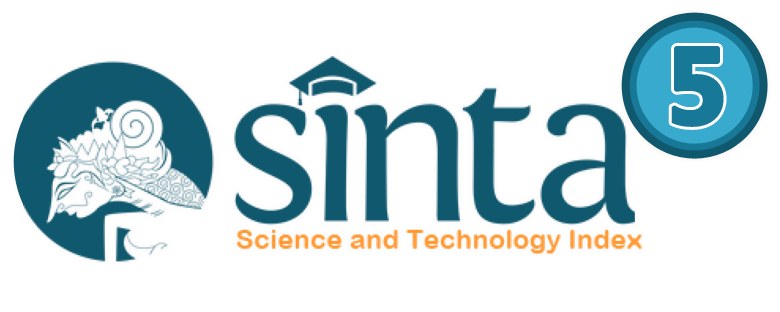RELASI AKTOR DALAM IMPLEMENTASI KEBIJAKAN PENDIDIKAN MENENGAH DI KOTA MATARAM
Abstract
Abstract, Secondary education policy needs to be improved by a process which is a strategic alternative to improve the quality of education. This paper examines the relation of actors in the implementation of secondary education policy in the city of Mataram which focuses on senior secondary education as an education sub-system by formulating and implementing education-related policies that are trademarks for the achievement of policy objectives. The Key to Policy Implementation uses a participatory approach in public policy making in education supported by 4 (four) factors as a driver of successful policy implementation. But in reality there are causes of the implementation of policies that have not optimally reached their objectives, namely: a). Communication b). Resources (Resources), c). Implementor Attitudes (Dispositions), and d). Bureaucratic Structure (Bureaucratic Structure). Then, on the other hand, the Government's relation with actors outside the government is not yet optimal, where the government has not effectively built relationships with the community and the business world so that governance has not been created in the implementation of secondary education policies. This condition requires improvement of aspects of policy implementation and improvement of coordination between actors and organizational culture towards the achievement of secondary education policy objectives in supporting governance in the city of Mataram.
Keywords: Policy Implementation, Secondary Education, Governance
Abstrak, Kebijakan pendidikan menengah perlu ditingkatkan dengan suatu proses yang merupakan alternatif strategis untuk meningkatkan kualitas pendidikan. Tulisan ini mengkaji relasi aktor dalam implementasi kebijakan pendidikan menengah di kota mataram yang menitikberatkan pada pendidikan menengah atas sebagai sub sistem pendidikan dengan merumuskan dan melaksanakan kebijakan terkait pendidikan yang menjadi trademark unttuk tercapainya tujuan kebijakan. Kunci Implementasi kebijakan menggunakan pendekatan partisipatory dalam pengambilan kebijakan publik bidang pendidikan yang ditopang oleh 4 (empat) faktor sebagai pendorong keberhasilan implementasi kebijakan. Namun secara realitas adanya penyebab implementasi kebijakan yang belum secara optimal mencapai tujuannya yaitu: a). Komunikasi b). Sumber Daya (Resources), c). Sikap Implementor (Dispositions), dan d). Struktur Birokrasi (Bureaucratic Structure). Kemudian pada sisi yang lain relasai Pemerintah dengan aktor di luar pemerintah yang belum optimal, dimana pemerintah belum secara efektif membangun relasi dengan masyarakat dan dunia usaha sehingga belum tercipta governance dalam implementasi kebijakan pendidikan menengah. Kondisi ini memerlukan pembenahan terhadap aspek-aspek implementasi kebijakan dan peningkatan koordinasi antar aktor dan budaya organisasi ke arah pencapaian tujuan kebijakan pendidikan menengah dalam mendukung governance di kota Mataram.
Kata Kunci: Implementasi Kebijakan, Pendidikan Menengah, Governance
Keywords
Full Text:
PDFReferences
Al-Arasy Wahyuddin, 2013 : “Relasi Pemerintah, sector Swasta dan Masyarakat dalam Mengatasi Masalah Kemiskinan” diunduh melalui https://elarasy.blogspot.co.id/2013/05/relasi-antara-pemerintah-sektor-swasta.html (12/16/2017)
Bakry, Aminuddin. 2010. Kebijakan Pendidikan Sebagai Kebijakan Publik. Jurnal Medtek Vol.2 No. 1. April.
Chema dan Rondinelli (UNCRD) 1981. “Analysing Decentralization Policies in. Developing Countries : a Political Economy” Sage Publication, London
Dolbeare Kenneth M 1975 : “Public policy evaluation; with a section on crime control evaluation” edited by John A. Gardiner.
Edward III, George, 1980. Implementing Public Policy. Washinton DC, Congresional Quaartely Press.
Fattah, Nanang. 2012. Analisis Kebijakan Pendidikan, Penerbit Remaja Rosdakarya Bandung.
Grindle, Merilee S, 1980. Politic and` Policy Implementation in the Third World, New Jersey: Pricenton University Press.
---------------, 1984, Public Policy Implementing, Jai Press Inc, London-England.
Goggin, Malcolm L et al. 1990. Implementation, Theory and Practice: Toward a Third Generation, Scott, Foresmann and Company, USA.
Gregory, Jackson. 2009 : “Actors and Institutions”, di unduh melalui www.bath.ac.uk/management/research/pdf (12/17/17)
Hudson, Valerie M. 2005: Foreign Policy Analysis: “Actor-Specific Theory and the Ground of International Relations”.
Law, J. (1992). Notes on the theory of the actor-network: Ordering, strategy, and heterogeneity. Systems Practice, 5(4), 379-393. Google Scholar, Crossref
Law, John. 2007 :“Actor Network Theory and Material Semiotics” .
Leach,R and Percy J-Smith, 2001. Local Governance in Britain, Basingstoke: Palgrave
Mazmanian, Daniel A and Paul A. Sabatier. 1983. Implementation and Public Policy, Scott Foresman and Company, USA.
---------------1981. Effective Policy Implementation, Lexington Mass DC; Heath.
Muhdi, 2012, “Model implementasi kebijakan pendidikan Kota Semarang pada era otonomi daerah”. JMP. Volume 1.Nomor 2. Agustus.
N Lee, S Brown, 1994 : “Otheness and the Actor Network”. American Behavioral Scientist, Journals,Sagepub.com
Nugroho, Riant. 2006. Kebijakan Publik Untuk Negara-negara Berkembang: Model-model Perumusan, Implementasi dan Evaluasi. Gramedia. Jakarta.
Pressman, J.L Aaron Wildavsky, 1978. Implementation: How Great Expectation. Washington Are Dashed In Oakland. London: California Press
Peraturan Daerah Nomor 4 Tahun 2009, Tentang Penyelenggaraan Pendidikan di Kota Mataram.
Peraturan Daerah Kota Mataram Nomor 4 Tahun 2008, Tentang Pemerintahan yang menjadi Kewewnangan Pemerintahan Daerah Kota Mataram.
Sabatier, Paul. 1986. “Top down and Bottom up Approaches to Implementation Research” Journal of Public Policy 6, (Jan), h. 21-48.
Scioli, Vaupel, James W., Frank P., Jr., and Cook, Thomas J.,1976 : "Methodologies for Analyzing Public Policies" (Book Review) , Policy Analysis, 2:2 (Spring) p.363
Tjokroamidjojo, Bintoro. 2000. Good Governance, Paradigma Baru Manajemen Pembangunan. Jakarta. UI. Press.
Van Meter, D.S and C.E Van Horn, 1978. The Policy Implementation Process, A conceptual Frame work Administration and society.
World Bank. 1998. Education in Indonesia: from crisis to recovery. Washinton, D.C. Education Sector Unit, East Asia and Pacific Regional Office.
DOI: https://doi.org/10.52447/ijpa.v6i1.4132
Refbacks
- There are currently no refbacks.







